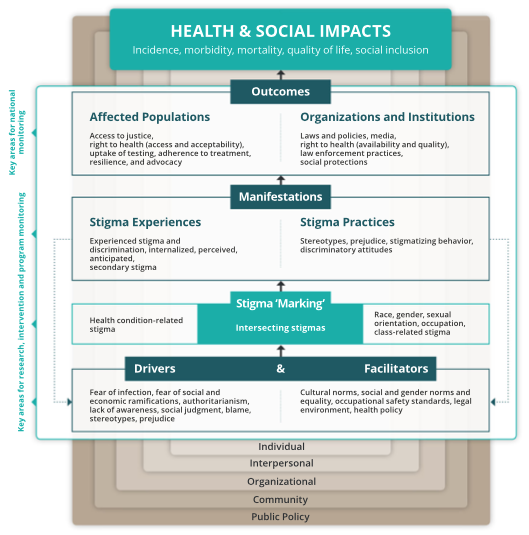Stigma is a well-documented barrier to health seeking behaviour, engagement in care and adherence to treatment across a range of health conditions globally. In order to halt the stigmatization process and mitigate the harmful consequences of health-related stigma, it is critical to have an explicit theoretical framework to guide intervention development, measurement, research, and policy.
In this article, the authors propose the Health Stigma and Discrimination Framework and demonstrate its application to a range of health conditions, including leprosy, epilepsy, mental health, cancer, HIV, and obesity/overweight.
The Health Stigma and Discrimination Framework

The framework articulates the stigmatization process as it unfolds across the socio-ecological spectrum, which can be broken down into a series of domains including:
- the factors that drive or facilitate health-related stigma;
- stigma ‘marking’ – whereby a stigma is applied to people or groups according to a specific health condition or other perceived difference e.g. race, class, gender;
- stigma manifestations through experiences and practices;
- outcomes for affected populations (e.g. access to and acceptability of health care services), organisations and institutions.
The authors also discuss how stigma related to race, gender, sexual orientation, class, and occupation intersects with health-related stigmas, and examine how the framework can be used to enhance research, programming, and policy efforts.
Conclusion
Research and interventions inspired by a common framework will enable the field to identify similarities and differences in stigma processes across diseases and will amplify our collective ability to respond effectively and at-sale to a major driver of poor health outcomes globally.



